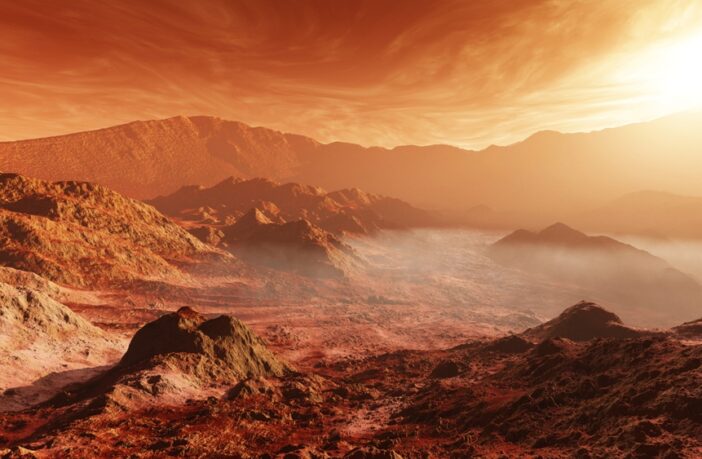- Annie Lennox, from The Open University (OU), says the International Astronomical Union’s (IAU) guidelines for the naming of planetary features should better represent women and marginalised groups
- Her research paper published in Nature Astronomy reveals that the IAU’s database of named features show that out of the 1,578 named craters of the Moon just 32, (2%), are named after women
- It also found that on Mars just 5 of the 280 (1.8%) planetary features named bear a woman’s name
- Yet women’s representation on Mercury fares slightly better – 49 out of 415 (11.8%)
An Open University scientist is urging the International Astronomical Union (IAU) to change its policies on the naming culture of new planetary features that she says is biased towards cis white men.
The IAU doesn’t bestow the names itself but sets naming conventions that have an impact on the diversity and inclusivity for the scientific community that ultimately chooses the names of planetary features.

Annie Lennox is a Doctorial Researcher at the OU
Annie Lennox, from Aberdeenshire, Scotland, is a Doctoral Researcher working as a member of the OU’s Planetary Environments Research Group and has had a paper on the naming traditions published by Nature Astronomy following an open letter to the IAU.
In her letter she points out that of the named craters of the Moon, just 32 are named after women – 2%; on Mars it’s just 1.8%, and Mercury has 11.8%.
Mercury, unlike the Moon and Mars, which are named after historical scientists, draws its names from historical art figures.
Annie said:
“Art as a field has historically been slightly less restrictive than science for allowing women to participate.”
She claims the increase in the number of women working in STEM, and the trend bringing equality, diversity and inclusion towards the forefront of the scientific community in recent years, is responsible for the slightly better diversity on Mercury, the most recently explored planetary body.
Before then, she says when the naming culture of Mars and the Moon began the scientific community was less diverse.
Annie said:
“Space exploration has revealed worlds of rock, of ice and, thanks to NASA’s Psyche mission, a world of metal. For all the worlds in our Solar System, it has become customary to name prominent surface features such as craters.
“Distant craters on the Moon, Mars and Mercury record a history much closer to home: celebrating the achievements of mankind, and to a much lesser extent womankind. Surface features are named following conventions that are set and maintained by the IAU.
“Frustratingly, elements of the current conventions crystallize historic injustices and contribute to a lack of diversity within the nomenclature.
“This is an example of how systemic underrepresentation and undervaluation of women and marginalized groups manifests in today’s scientific systems.”
In the naming of craters on Venus, female representation fares better: all names on Venus have to have a female origin.
But Annie said:
“These women needn’t be real. In fact, I found that only 38% of craters on Venus are named after actual women who made real contributions to society.
“On the one planet intended to exclusively celebrate the contributions of women, more features have been given meaningless, arbitrary female first names or the names of mythological goddesses, than those of real women.”
She says the conventions of the IAU’s nomenclature are to blame. While it doesn’t bestow the names, it provides the guidelines to the scientific community that suggests the names.
She said:
“The crux of this argument is that weighting celebrity status – placing an emphasis on recognition and essentially prioritising fame over contribution, inherently disadvantages women and marginalised groups regardless of the field.”
But she says she, along with her colleagues PhD student Benjamin Man and supervisor Professor David Rothery did, in fact, successfully persuade the IAU to change the origins of Mercury’s Neruda crater.
Instead of celebrating Chilean poet Pablo Neruda, a Senator of the Chilean Communist Party, and a self-confessed rapist, it celebrates Czech poet and journalist Jan Neruda and Johann Baptist Georg Neruda: Czech classical composer, violinist and cellist.
Annie said it “gives her hope” that the naming conventions might change in the near future.
Main picture: Shutterstock



